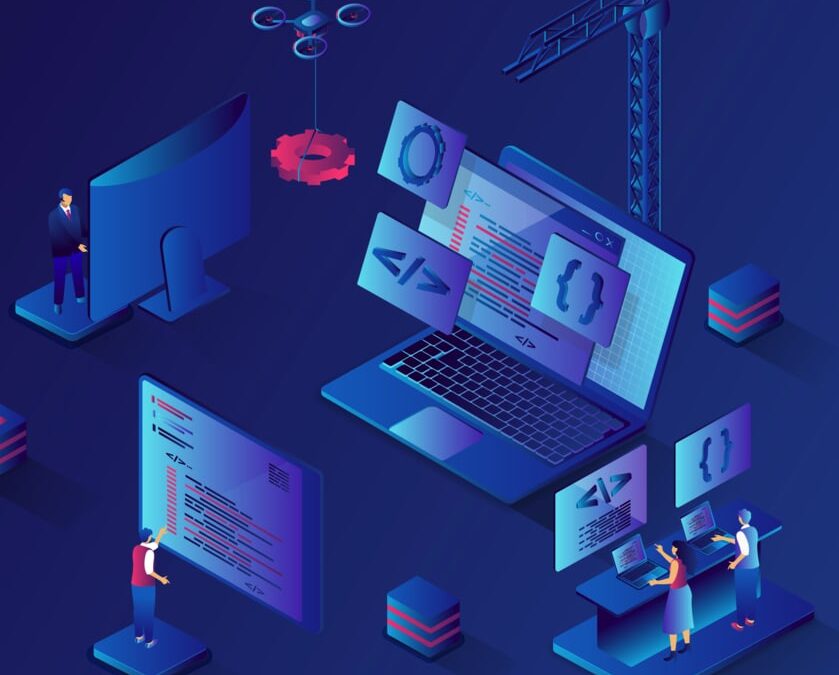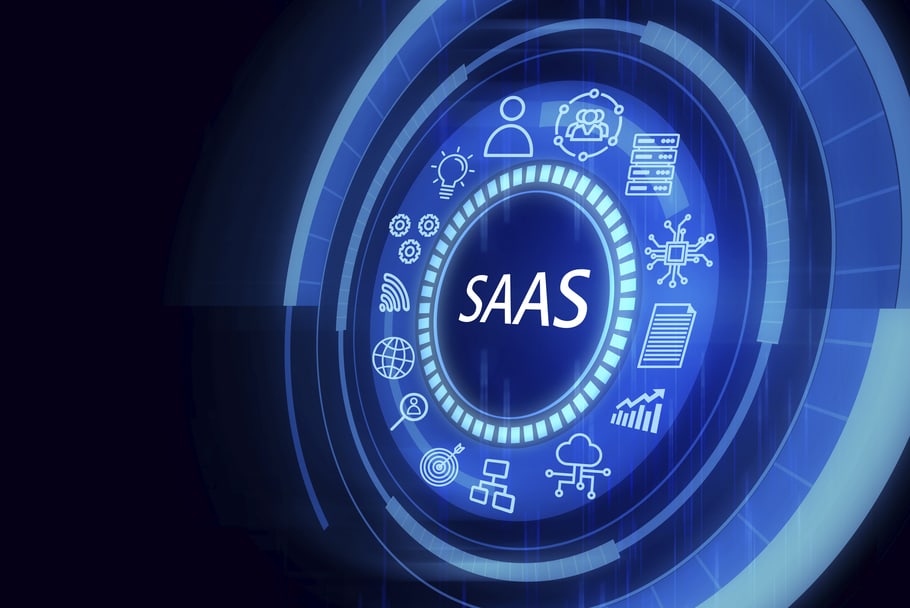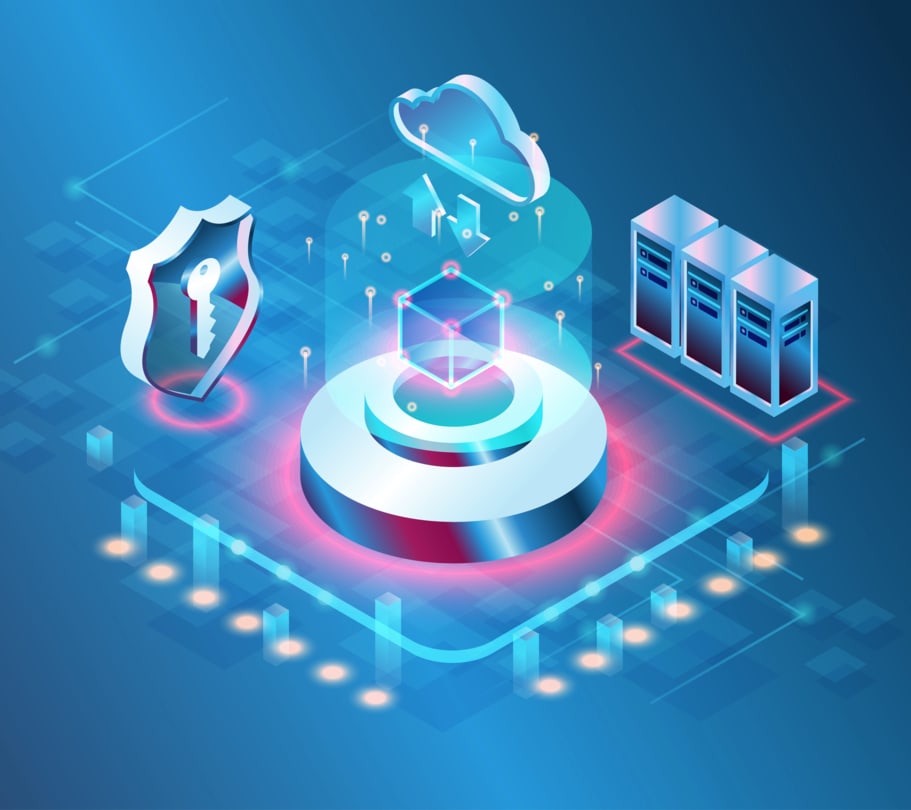When most people think of software applications, they typically think of standalone software installed on a user’s computer. However, another type of application is called a “software as a service” (SaaS) platform. So, what distinguishes a SaaS platform from regular software applications? And why are SaaS platforms becoming increasingly popular? In this blog post, we will answer these questions and more.
What is a SaaS Platform?
A SaaS platform is a software application offered by the provider on a subscription basis. Users can access and use the software application via the Internet. Unlike enterprise software applications, SaaS platforms are designed for a wide range of users and businesses. The SaaS model has transformed the way software is delivered and consumed.
Any SaaS software worth its salt will be able to integrate with other software applications via APIs. This allows businesses to use it as a foundation for their software applications or to simply connect it to other software applications they are already using.
SaaS platforms typically offer a lower total cost of ownership (TCO) than enterprise software applications. This is because the SaaS provider manages and maintains the application, reducing the customer’s burden.
Different database management systems (DBMS) are used to store data for different types of SaaS applications. The most common database used for SaaS applications is a relational database, such as MySQL, Oracle, or Microsoft SQL Server.
No matter what type of business you are in, chances are there is a SaaS platform that can help you run your business more efficiently. They are being used in a wide range of industries, including but not limited to:
- Customer Relationship Management (CRM)
- Human Resources (HR)
- Marketing
- Accounting
- Project Management
- eCommerce
Do you want to make your SaaS company a success?
Contact Growth Hackers
What Are the Benefits of Using a SaaS Platform?
There are many benefits to using a SaaS platform over traditional software applications.
Accessibility
SaaS platforms are typically accessed via the internet, meaning that users can access them anywhere. This is a major advantage for businesses with employees working remotely or traveling often. Your team can collaborate on projects and access important data from any location.
Updates and Maintenance
With a SaaS platform, your software is always up to date with the latest features and security updates. The vendor takes care of all maintenance and upgrades, so you don’t have to worry about it.
Operational Management
SaaS platforms offer businesses a way to manage their operations more efficiently. With all of your data in one place, you can track progress, spot trends, and make decisions to help your business grow. Different customer relationship management (CRM) features can be integrated into the software to give you an overview of your customers and their interactions with your business.
Cost-Effective
SaaS platforms are generally much cheaper than regular software applications since they are delivered through the internet and don’t require installation or complex configuration. Like other cloud-based services, they are typically subscription-based with lower upfront costs. No matter how big or small your business is, you can usually find a subscription plan that fits your needs and budget.
Scalability
A SaaS platform can be easily scaled up or down to meet the changing needs of your business. If you need to add more users or storage, you can do so without re-installing the software or purchasing additional licenses. The cloud computing infrastructure that underlies most SaaS platforms makes this possible.
Security
Because they are built on top of the secure, enterprise-grade infrastructure, SaaS platforms typically offer better security than regular software applications. This is especially important if you are storing sensitive data in the cloud. If security is a key concern for you, then a SaaS platform is likely the better option.
Analytics
SaaS platforms usually include built-in analytics tools that allow you to track usage and trends. This can help you understand how your employees use the software and identify improvement areas.
There are a lot of benefits that SaaS platforms offer over regular software applications. Some of the most notable ones include scalability, security, and analytics. If any of these are key concerns for you, then a SaaS platform is likely the better option. As every software distribution model has pros and cons, it’s important to evaluate your specific needs before deciding.
What is the Difference Between Web Applications and SaaS Platforms?
Many people still confuse the two terms. However, there is a big distinction between the two. A web application is simply an application that is accessed via a web browser. It can be run on a server and accessed by anyone with an internet connection. A SaaS platform, on the other hand, is a much more comprehensive solution that includes the web application and the infrastructure and security necessary to run it. In addition, SaaS platforms are often delivered as a service, with a monthly or annual subscription fee.
The SaaS provider manages all of the technical aspects of the solution, including hosting, security, updates, and scalability. This allows businesses to focus on using the application to achieve their goals rather than worrying about the underlying technology. While web applications can be delivered as a service, they do not include the same management and support typically found with a SaaS platform.
In the different cloud services models, the SaaS is a software distribution model in which applications are hosted by the service provider and made available to customers over the Internet. Customers can access and use the applications, typically through a web browser, while the service provider manages the infrastructure and security.
SaaS applications are usually easy to use and require little or no training. They are typically accessed through a web browser, although some SaaS applications can be accessed through a mobile app.
What Distinguishes a SaaS Platform From Regular Software Applications?
Now that you understand the basics of SaaS, it’s time to learn about the differentiating factors that make a SaaS platform unique. To be considered a true SaaS platform, four essential characteristics must be met:
Installation
When it comes to SaaS platforms, there is zero installation required. Users can access the software from any internet-enabled device with nothing more than a web browser. This starkly contrasts with traditional software applications, which must be installed on each computer that wishes to use it.
Multi tenancy
A SaaS platform must be able to support multiple tenants or customers. This is in contrast to single tenancy, where each customer has their unique software instance. If a platform only supports single tenancy, it is not considered a true SaaS platform.
Subscription-based
For a platform to be considered SaaS, it must be offered on a subscription basis. This means that users pay a recurring fee to access the software. One-time purchase licenses are not sufficient. The operating system, database, and server software must also be included in the subscription for the platform to be considered SaaS.
API-based
A SaaS platform exposes APIs that other software applications can use to access the platform’s functionality. This allows for a much more open and modular approach to building software applications and a greater degree of integration between different software applications. While the traditional model for software development involves a lot of tightly coupled code, the SaaS platform model favors a more loosely coupled approach. The SaaS offerings include the application software, the runtime environment, web server, database, and operating system.
Customizability
A SaaS platform must be highly customizable to meet the needs of a wide range of customers. This includes the ability to customize the user interface, workflows, and data models. The platform should also provide a way for customers to extend the functionality of the application through the use of plugins or add-ons.
Centrally maintained
One of the biggest benefits of SaaS platforms is that the provider centrally maintains them. This means that users don’t have to worry about patching, upgrading, or managing the infrastructure. All of these costs are borne by the SaaS provider. In contrast, traditional software applications require significant IT resources to maintain and support. As different business processes change, the software must be updated accordingly.
Whether you have a SaaS platform or a regular software application, we can help you acquire users!
Functionality
SaaS platforms tend to be much more feature-rich than traditional software applications. This is because they are designed from the ground up to be used by a wide variety of customers with different needs. As such, they need to provide a broad set of features out of the box. On the other hand, traditional software applications are often developed with a specific customer in mind and tend to be much more focused in terms of functionality.
Data Ownership
One of the most controversial aspects of SaaS platforms is the issue of data ownership. Because the platform is hosted in the cloud, it can be difficult for customers to know where their data is stored and who has access to it. In contrast, traditional software applications are typically installed on-premises, which gives the customer complete control over their data.
Final Words on What Distinguishes a SaaS Platform From Regular Software Applications
When it comes to software applications, there is no one-size-fits-all solution. The type of application you choose should be based on the specific needs of your business. However, if you’re looking for a scalable, flexible, and cost-effective solution, then a SaaS platform may be the right choice for you.
SaaS platforms offer several advantages over traditional software applications. They are typically more affordable, easier to deploy and manage, and more scalable. Additionally, SaaS platforms are often updated more frequently, providing you with the latest features and security patches.
If you’re considering a SaaS platform for your business, be sure to do your research and choose a reputable provider. Additionally, ensure that the platform meets the specific needs of your business. With the right SaaS platform in place, you can enjoy all the benefits it has to offer.
Growth Hackers is a first-class growth hacking agency helping businesses from all over the world grow. There is no fluff with Growth Hackers. We help entrepreneurs and business owners grow their SaaS platforms and software applications, generate qualified leads, optimize their conversion rate, gather and analyze data analytics, acquire and retain users and increase sales. We go further than brand awareness and exposure. We make sure that the strategies we implement move the needle so your business grow, strive and succeed. If you too want your business to reach new heights, contact Growth Hackers today so we can discuss about your brand and create a custom growth plan for you. You’re just one click away to skyrocket your business.








